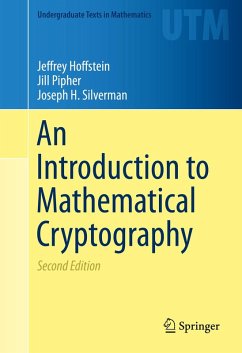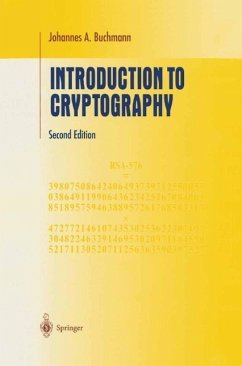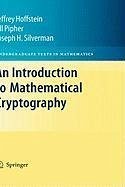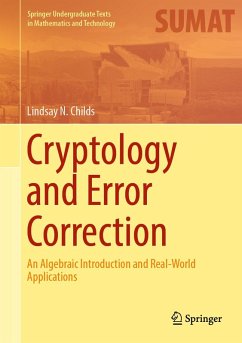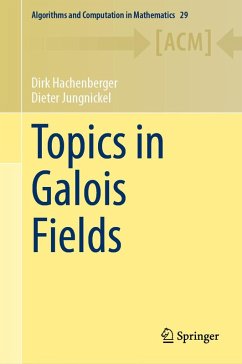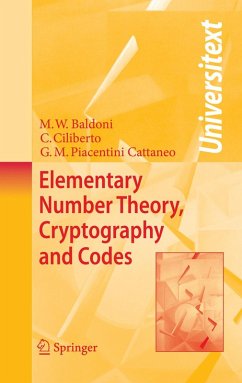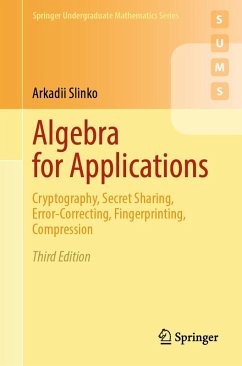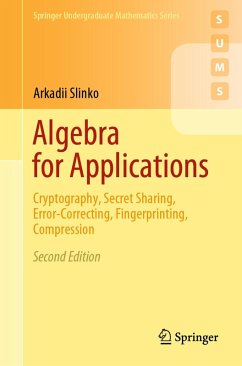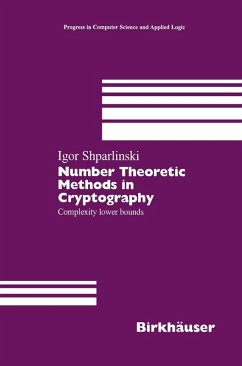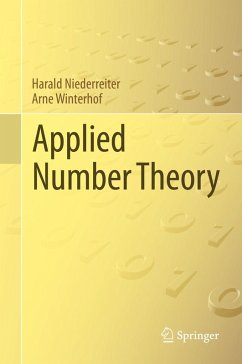
Algebra for Cryptologists (eBook, PDF)
Versandkostenfrei!
Sofort per Download lieferbar
38,95 €
inkl. MwSt.
Weitere Ausgaben:

PAYBACK Punkte
19 °P sammeln!
This textbook provides an introduction to the mathematics on which modern cryptology is based. It covers not only public key cryptography, the glamorous component of modern cryptology, but also pays considerable attention to secret key cryptography, its workhorse in practice.Modern cryptology has been described as the science of the integrity of information, covering all aspects like confidentiality, authenticity and non-repudiation and also including the protocols required for achieving these aims. In both theory and practice it requires notions and constructions from three major disciplines:...
This textbook provides an introduction to the mathematics on which modern cryptology is based. It covers not only public key cryptography, the glamorous component of modern cryptology, but also pays considerable attention to secret key cryptography, its workhorse in practice.
Modern cryptology has been described as the science of the integrity of information, covering all aspects like confidentiality, authenticity and non-repudiation and also including the protocols required for achieving these aims. In both theory and practice it requires notions and constructions from three major disciplines: computer science, electronic engineering and mathematics. Within mathematics, group theory, the theory of finite fields, and elementary number theory as well as some topics not normally covered in courses in algebra, such as the theory of Boolean functions and Shannon theory, are involved.
Although essentially self-contained, a degree of mathematical maturity on the part of the reader is assumed, corresponding to his or her background in computer science or engineering. Algebra for Cryptologists is a textbook for an introductory course in cryptography or an upper undergraduate course in algebra, or for self-study in preparation for postgraduate study in cryptology.
Modern cryptology has been described as the science of the integrity of information, covering all aspects like confidentiality, authenticity and non-repudiation and also including the protocols required for achieving these aims. In both theory and practice it requires notions and constructions from three major disciplines: computer science, electronic engineering and mathematics. Within mathematics, group theory, the theory of finite fields, and elementary number theory as well as some topics not normally covered in courses in algebra, such as the theory of Boolean functions and Shannon theory, are involved.
Although essentially self-contained, a degree of mathematical maturity on the part of the reader is assumed, corresponding to his or her background in computer science or engineering. Algebra for Cryptologists is a textbook for an introductory course in cryptography or an upper undergraduate course in algebra, or for self-study in preparation for postgraduate study in cryptology.
Dieser Download kann aus rechtlichen Gründen nur mit Rechnungsadresse in A, B, BG, CY, CZ, D, DK, EW, E, FIN, F, GR, HR, H, IRL, I, LT, L, LR, M, NL, PL, P, R, S, SLO, SK ausgeliefert werden.



